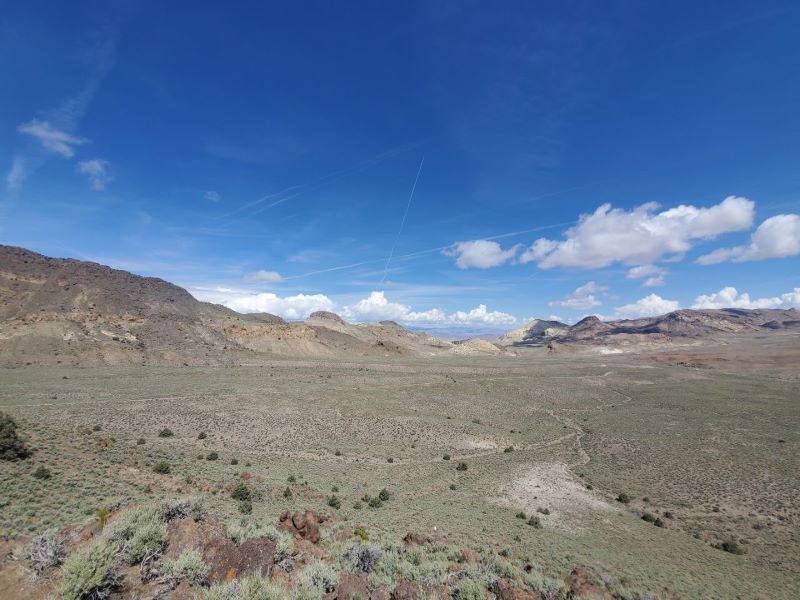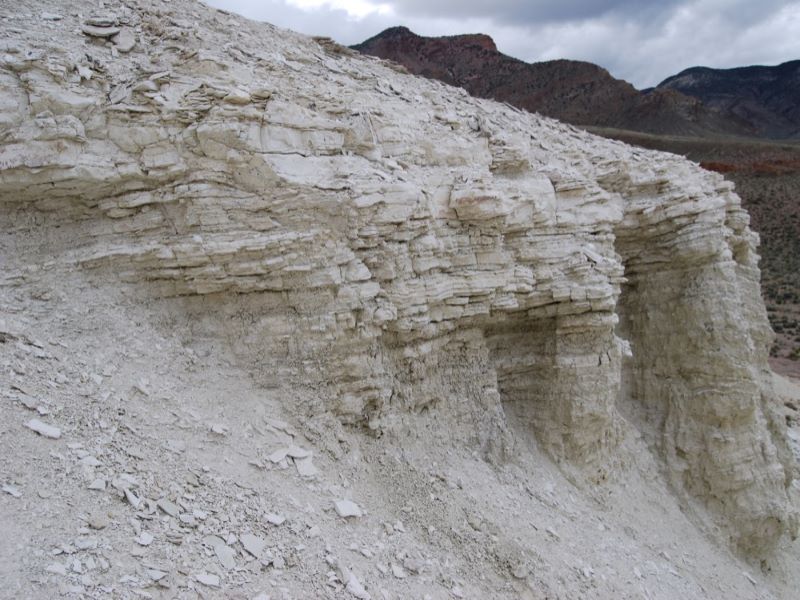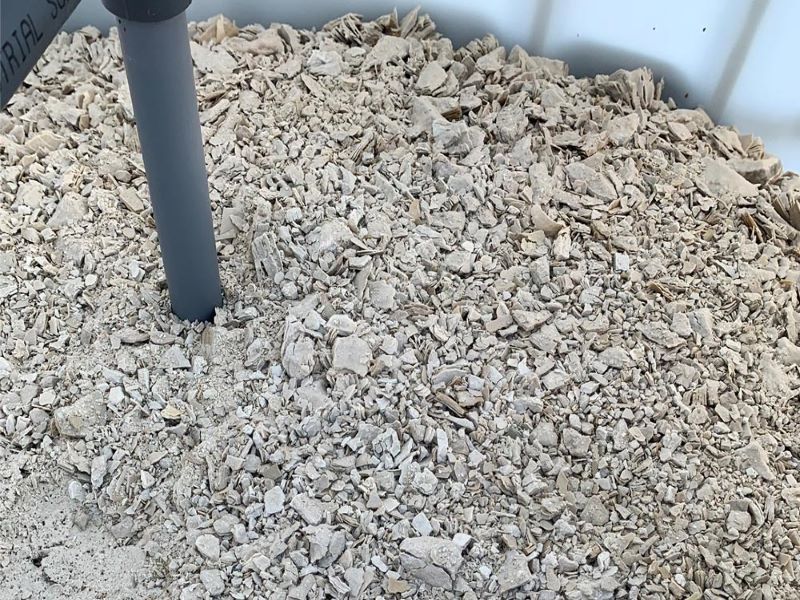The Rhyolite Ridge lithium-boron project is a large-scale, greenfield open-pit project proposed to be developed in southern Nevada, US, by Ioneer, an emerging company focused on lithium minerals production.
A definitive feasibility study (DFS) for the Rhyolite Ridge lithium-boron project was completed in April 2020. It indicated the potential for an open-pit lithium mining operation with an estimated capital investment of $785.4m.
The project will have an average annual production of 22,340 tonnes (t) of lithium carbonate (Li₂CO₃) in the first three years, 21,951t of lithium hydroxide (LiOH) over the remaining mine life, and 174,378 tonnes per annum of boric acid (H₃BO₃) over its lifespan. The total mine life is expected to be 26 years.
Multinational precious metals mining company Sibanye-Stillwater reached an agreement with Ioneer to establish a joint venture (JV) for the development of the lithium-boron project in September 2021.
The agreement will allow Sibanye-Stillwater to acquire a 50% interest in the JV by investing $490m in the project.
Ioneer will retain the remaining 50% and be responsible for the development and operation of the mine.
In January 2023, the US government offered a conditional commitment for a loan of up to $700m for the project.
The Bureau of Land Management (BLM) issued the project’s draft Environmental Impact Statement (EIS) in April 2024. The final EIS and a Record of Decision (ROD) from the BLM are expected in October 2024.
Construction on the project is expected to begin after receiving a positive ROD and a final investment decision in December 2024. The first product shipment from the project is expected in 2027.
Rhyolite Ridge lithium-boron project location and geology
The Rhyolite Ridge project will be developed on a portion of land in Esmeralda County in the Silver Peak Range, approximately 20km north-east of Dyer, Nevada.
The deposit is situated within the Basin and Range Province, which is dominated by horst and graben normal faulting.
The project area features tertiary volcanic rocks characterised by a sequence of interlayered sedimentary and volcanic rocks.
Folded and faulted metasedimentary basement rocks from the Precambrian-Paleozoic era are overlain by the tertiary volcanic rocks.
Mineralisation and reserves of the Rhyolite Ridge project
The mineralisation at the Rhyolite Ridge project is hosted in lacustrine (lake) beds, which envelop the Rhyolite Ridge Tuff and Argentite Canyon volcanic rocks aged more than six million years.
The lacustrine section within the Cave Spring formation hosts three members, of which the middle member is bounded by gritstones, bearing anomalous lithium in its upper half.
The proven and probable mineral reserves at the Rhyolite lithium-boron project were estimated at 60.2 million tonnes grading 1,797 parts per million of lithium and 15,418 parts per million of boron, as of April 2020.
Mining methods at Rhyolite Ridge lithium-boron project
The Rhyolite Ridge lithium-boron project will be mined employing an open-pit mining method using conventional drill-and-blast, and load-and-haul.
Ore will be transported to the nearby ore processing stockpile and then fed to the crushing plant.
The project will be developed in two stages, with stage one involving the development of a starter pit in the south-western part of the ore body to supply ore feed for the initial 4.5 years of the project.
The ore in the stage one mining area is more exposed at the surface and has 15% higher lithium grades compared to the average grade for the deposit.
Stage two will involve the development of the greater pit to facilitate a larger mining area. It will support the operation of the mine for another 21 years through expansions to the south and east, as well as further to the north of the deposit.
The mining fleet in the initial operation will include automated haul trucks to reduce operating costs and accidents at the mine site.
A high-precision GPS and real-time analytics will support the operations of the mining fleet.
Mineral processing at the Rhyolite Ridge lithium-boron project
The processing facility will be an environment-friendly plant with measures to reduce the emissions of greenhouse gases and harmful pollutants into the atmosphere.
The overall recovery is estimated to be 85% Li₂CO₃, 95% LiOH, and 79% H₃BO₃.
The readily leachable property of the Rhyolite Ridge ore eliminates the need for major crushing and milling to achieve high lithium and boron extraction rates.
The ore will be crushed to less than 20mm before being conveyed and stacked directly into the leaching vats.
A series of seven vats operating in a counter-current configuration will be used to sequentially leach the ore for three days with diluted sulphuric acid. A displacement wash will be used to remove valuable interstitial lithium and boron in the solution.
The vat leach or pregnant leach solution will be cooled in a crystalliser to produce H₃BO₃ crystals. Centrifuges will be used to separate the crystals, which will be purified through recrystallisation.
The resultant solution from the crystallisation of H₃BO₃ will be treated for the removal of aluminium and other impure elements, before being sent to a four-stage evaporator circuit where up to 70% of water content will be removed.
Lithium will also be concentrated in the evaporator circuit for further processing in the Li₂CO₃ circuit.
The Li₂CO₃ circuit will employ the precipitation method to remove the remaining magnesium from the solution.
The process will also liberate Li₂CO₃, which will be filtered, washed, and dried to produce technical-grade Li₂CO₃.
Offtake agreements of the Rhyolite Ridge project
The project envisions selling Li₂CO₃ as a technical-grade product at 99% purity during the initial three years of operation and LiOH at 99.5% purity from the fourth year.
A binding offtake agreement was signed with Chinese boron company Dalian Jinma Boron Technology in December 2019.
The agreement allows Jinma to procure 105,000 tonnes per annum of H₃BO₃ from the project for five years.
Ioneer signed two separate agreements with Kintamani Resources and Boron Bazar for the supply of H₃BO₃ in May 2020.
The company also reached an agreement with South Korean lithium battery specialist EcoPro Innovation for the supply of up to 7,000 tonnes per annum of Li₂CO₃ for three years.
Infrastructure details at the lithium-boron project
A sulphuric acid plant with a capacity of 3,500 tonnes per day will be constructed at the project site to produce commercial-grade (98.5%) sulphuric acid, which will be used for the vat leaching process.
The Rhyolite Ridge project will receive electricity from a 35.2MW on-site steam power plant, which will use steam produced from the waste heat boiler in the sulphuric acid plant to generate electricity.
A 13.8kV substation near the steam generator will distribute power to the project. A new heavy haul road will be built to facilitate the transportation of the ore from the quarry to the stockpile area.
Key players involved
ABB was awarded a contract covering project management, engineering, and supply of power and automation systems for the project.
The scope of the contract involves systems engineering and optimisation for various equipment packages such as steam turbine generators, electrical distribution systems, power management, and plantwide automation for power generation and processing plants.
Multinational engineering and construction company Fluor was engaged to prepare the DFS for the project.
It is also the engineering, procurement, and construction management contractor for the project.
Canadian engineering business SNC-Lavalin is responsible for providing engineering and procurement services for the power plant and the sulphuric acid plant.
The mine and haul road design was completed by consulting and design services company Golder Associates. Local engineering consultant Kappes, Cassiday & Associates was selected to provide baseline metallurgical test work for vat leaching.
Global technology provider DuPont Clean Technologies was contracted to provide its sulphuric acid technology for the project.
EM Strategies, NewFields, and Trinity were appointed to provide environmental permitting oversight and prepare permit applications.
Global automation solutions provider Emerson supported the DFS by providing control systems architecture and budget pricing. EnviroMINE and NewFields prepared the geotechnical report for the project.
Kemetco was awarded the contract to build a pilot plant for the project in March 2019.
Mining equipment supplier Caterpillar was named as the exclusive heavy equipment partner for the project in October 2020.
Danish company FLSmidth received a contract to supply major engineering and equipment, including crushing and material handling equipment, as well as lithium carbonate and boric acid dryers, in July 2021.
An engineering and equipment supply contract was awarded to water and wastewater treatment solutions provider Veolia Water Technologies for the supply of evaporation, crystallisation, and dewatering equipment, in August 2021.






